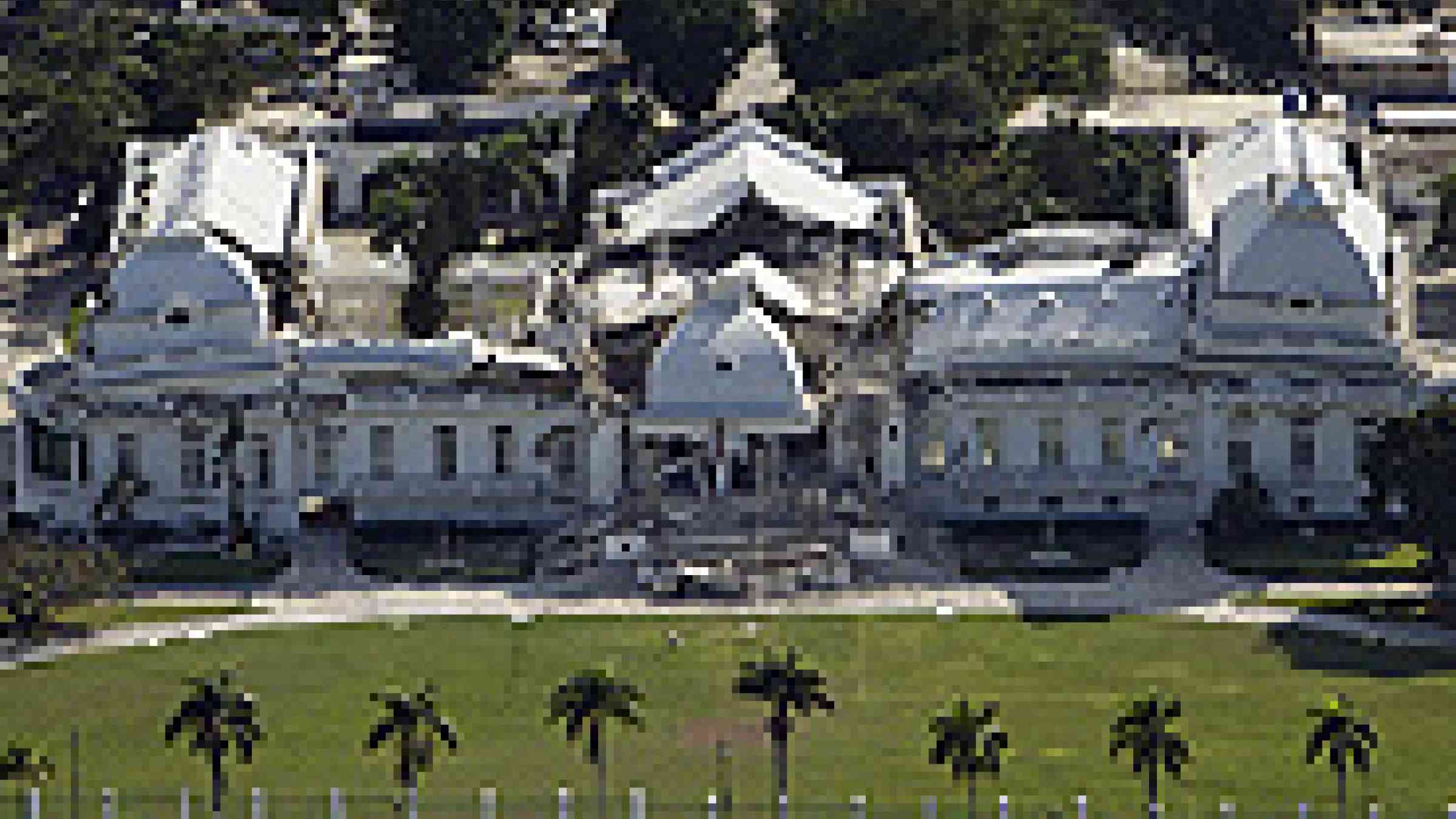Please help us improve PreventionWeb by taking this brief survey. Your input will allow us to better serve the needs of the DRR community.
Red Cross Red Crescent intensifies relief and plans for early recovery in Haiti

Photo copyright UNDP
International Federation of Red Cross and Red Crescent Societies (IFRC) - press release
The leaders of the world’s largest humanitarian organization are on their way to earthquake-devastated Haiti as part of a massive disaster response and recovery operation.
International Federation of Red Cross and Red Crescent Societies (IFRC) President Tadateru Konoé and Secretary General Bekele Geleta will arrive in Port-au-Prince today (19 January) to lead what is shaping up as one of the IFRC’s largest and most complex operations in recent memory.
“We must confront a natural disaster that is not only one of the biggest of the past decade, but is affecting one of the very poorest countries in the world,” says Konoé.
“Poverty is at the root of this catastrophe, and countless lives could have been saved by investment in quake-resistant buildings and other disaster risk reduction measures,” emphasizes Geleta.
“What we are seeing in Haiti is what happens when an extreme natural event occurs in the lives of people who are already frighteningly vulnerable, and the terrible human cost of this tragedy is only now becoming clear.
“The international community and humanitarian organizations such as the International Red Cross and Red Crescent Movement must work together to tackle the survivors’ urgent needs and ensure that they can recover and move towards a safer future,” he adds.
President Konoé praised the Haitian National Red Cross Society for its brave and determined response in the immediate aftermath of Tuesday’s magnitude 7 earthquake, which is estimated to have affected as many as three million people.
“Haitian Red Cross volunteers were among the first to respond because they live within the affected communities,” he says.
“They too have suffered appalling losses. They are shocked and grieving. And yet their desire to help their fellow human beings takes priority. They are true humanitarian heroes and we are both proud of, and humbled by, their dedication.”
Konoé said that the Red Cross Red Crescent would use the experience it has gained from five years of post-tsunami recovery work to ensure that Haiti’s devastated communities not only receive the help they need now, but will continue to do so in the months and years to follow.
“The people affected by this disaster will be full partners in all Red Cross Red Crescent work to restore their homes, livelihoods and – most importantly – their dignity,” says the IFRC president.
“Disaster response is a sprint but disaster recovery is a marathon,” adds Geleta. “I will personally ensure that sustainable long-term recovery plans are at the heart of everything the IFRC and its partners do in Haiti.”
More than 400 Red Cross Red Crescent aid workers – including 180 from Caribbean and Central and South American National Red Cross Societies – have arrived in Port-au-Prince, with dozens more en route.
Sixteen emergency response units (ERUs) have also been deployed to Haiti with 11 having arrived as of last night (18 January). These include a 70 bed rapid deployment hospital that is now set up in the grounds of Port-au-Prince’s University hospital, two mobile basic health care units that can provide curative and preventative assistance to 30,000 people each, a Red Cross Red Crescent base camp, and two logistic units to facilitate the rapid arrival and deployment of aid.
So far, more than 500 tonnes of aid has been mobilized and scheduled to arrive in the coming days.
These efforts are part of the International Red Cross and Red Crescent Movement response, which also includes the ICRC. The ICRC has distributed medical materials for more than 2,000 patients to hospitals and to the Haiti Red Cross. More than 23,000 people have been registered on a special ICRC website that helps to reunite families without contact since the disaster struck. The ICRC has also contributed to Movement efforts to provide relief aid and clean water to thousands made homeless by the earthquake.
The IFRC is currently appealing for 105.7 million Swiss francs (103 million US dollars/73 million euro) to assist 300,000 people for three years. As more information becomes available, this appeal is expected to be revised.
For further information, or to set up interviews, please contact:
Matthew Cochrane, Acting, IFRC public communications manager + 41 79 308 98 30
Jean-Luc Martinage, IFRC advocacy and communications officer (French language) + 41 79 217 33 86
In Haiti: Gennike Mayers, communications delegate + 509 3491 9718
In Panama: Pilar Forcen, communications manager for the IFRC Americas zone + 507 66 72 31 70
Manuel Rodriguez, PADRU information officer + 507 66 79 43 34
Explore further
Please note: Content is displayed as last posted by a PreventionWeb community member or editor. The views expressed therein are not necessarily those of UNDRR, PreventionWeb, or its sponsors. See our terms of use
Is this page useful?
Yes No Report an issue on this pageThank you. If you have 2 minutes, we would benefit from additional feedback (link opens in a new window).